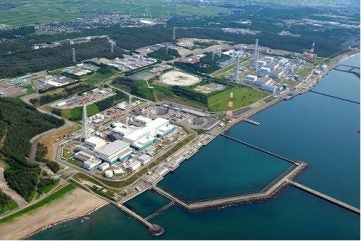
The Japanese government has agreed to improve the evacuation procedure at Tokyo Electric Power Company Holdings’ (Tepco’s) Kashiwazaki-Kariwa NPP in Niigata Prefecture. Local media said the move is intended to gain the understanding of local residents for a restart of the plant before Prime Minister Fumio Kishida steps down this autumn. “It’s increasingly important to restart the Kashiwazaki-Kariwa nuclear power plant” due to the fragile power supply structure in eastern Japan, Kishida told a meeting of ministers.
“I want related ministers to work closely to promote understanding for the restart and take more concrete measures,” he added, noting the government’s intention to strengthen its involvement. The government also decided to establish a new framework to discuss ways to develop evacuation roads without imposing financial burdens on the Niigata prefectural government. The prefecture had asked the central government to strengthen disaster management measures for the plant following Noto Peninsula earthquake in Ishikawa Prefecture in January.
Although Kashiwazaki-Kariwa was unaffected by the March 2011 earthquake and tsunami all seven of the plant’s reactors had been offline for two to three years following the earlier 2007 Niigata-Chuetsu earthquake, which caused damage to the site. Work has since been carried out to improve the plant’s earthquake resistance.
Tepco applied for Nuclear Regulation Authority (NRA) approval of its design and construction plan for Kashiwazaki-Kariwa units 6&7 (1,356 MWe advanced boiling water reactors) in September 2013. These were the first Japanese boiling water reactors to be considered for restart after all Japan’s reactors were shut down in the wake of the Fukushima disaster in 2011.
NRA cleared safety screenings for the two units in 2017 but security breaches and problems in completing safety upgrades caused delays. NRA prohibited the transportation or loading of reactor fuel stored at the plant in April 2021 due to insufficient counterterrorism measures, ordering Tepco to take corrective action. In January 2024, NRA confirmed that those measures had been taken and preparations for restart continued.






